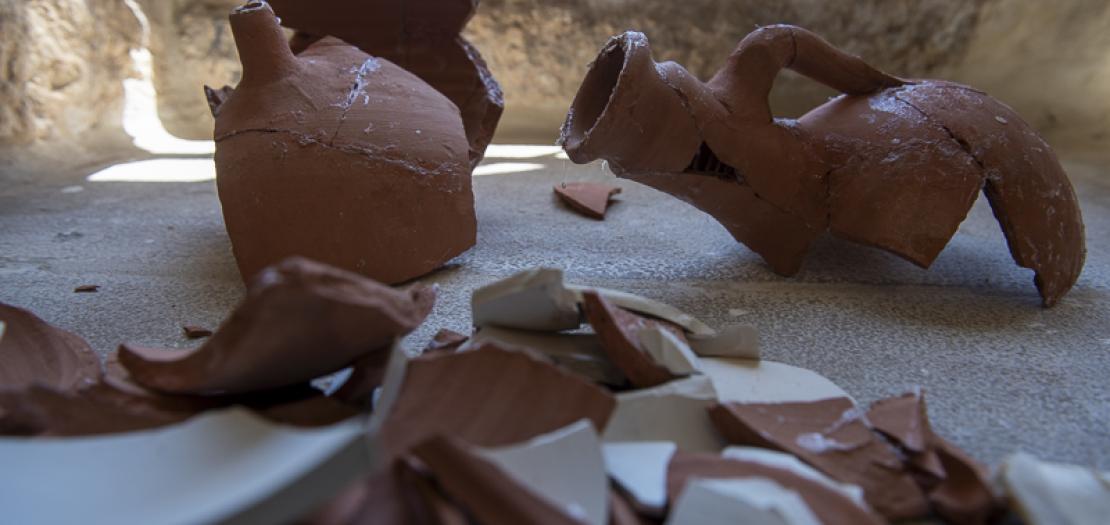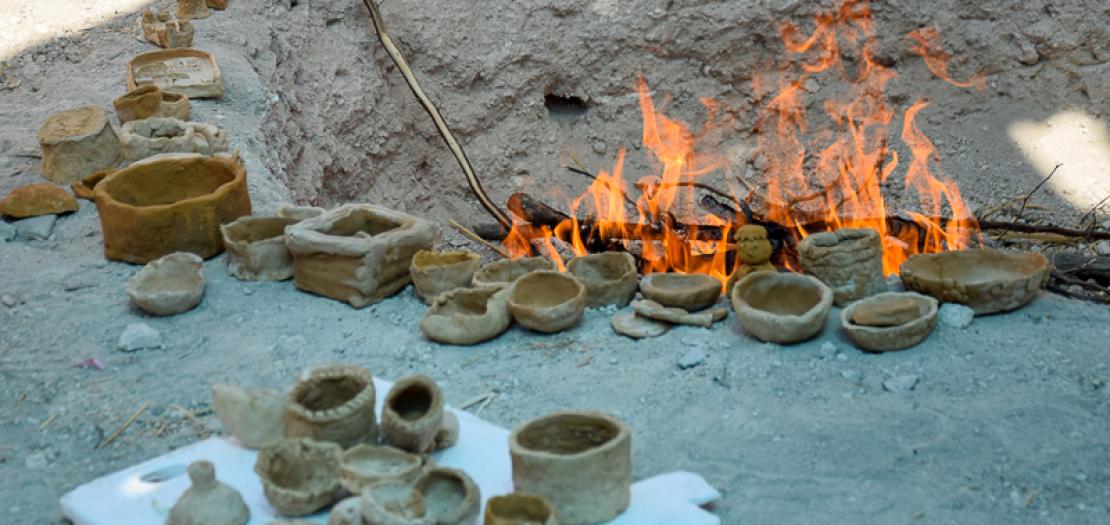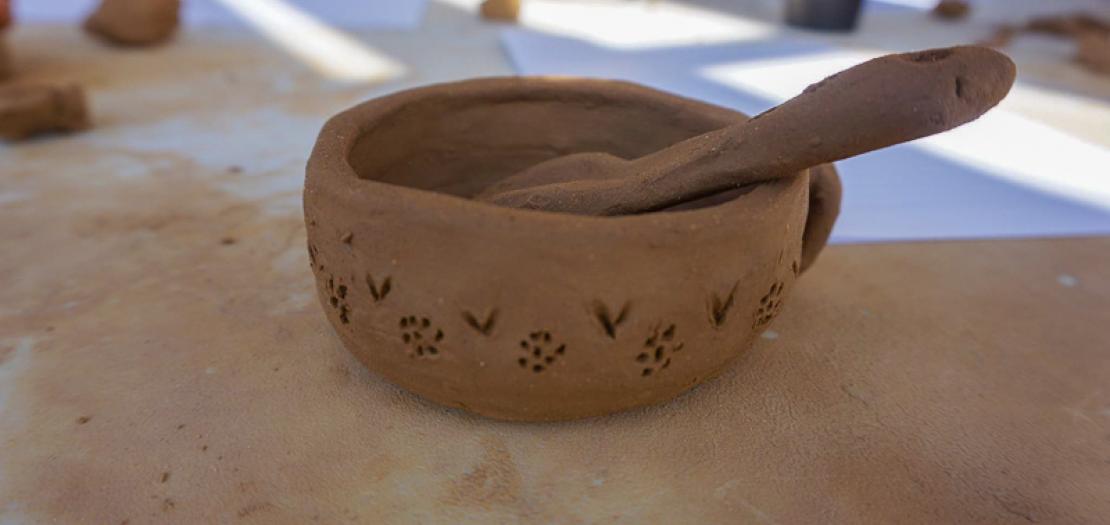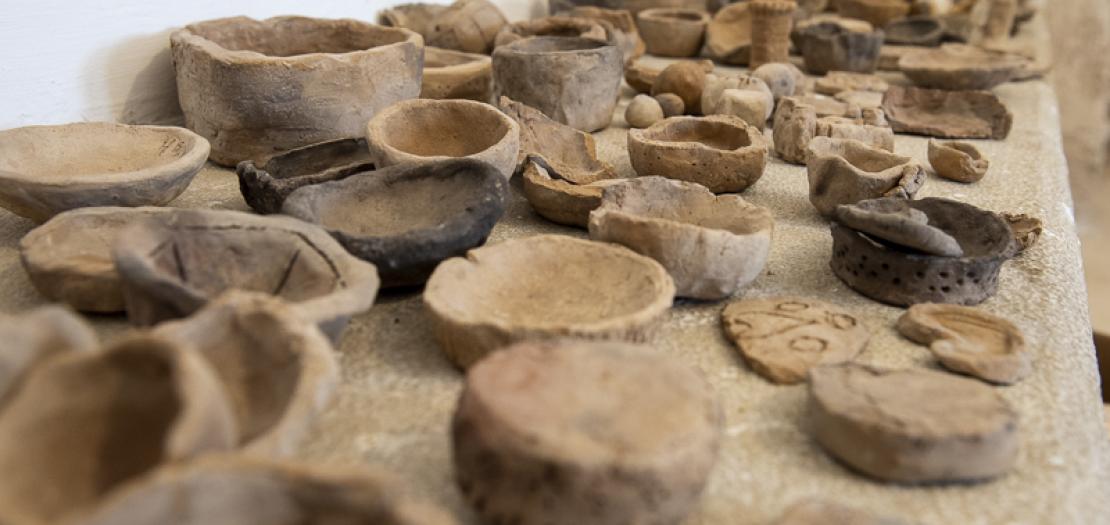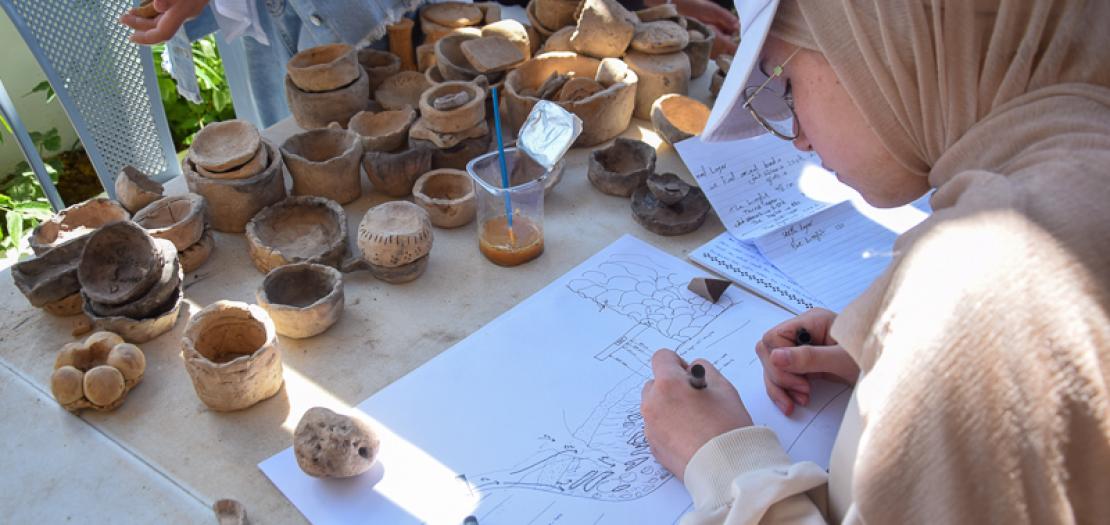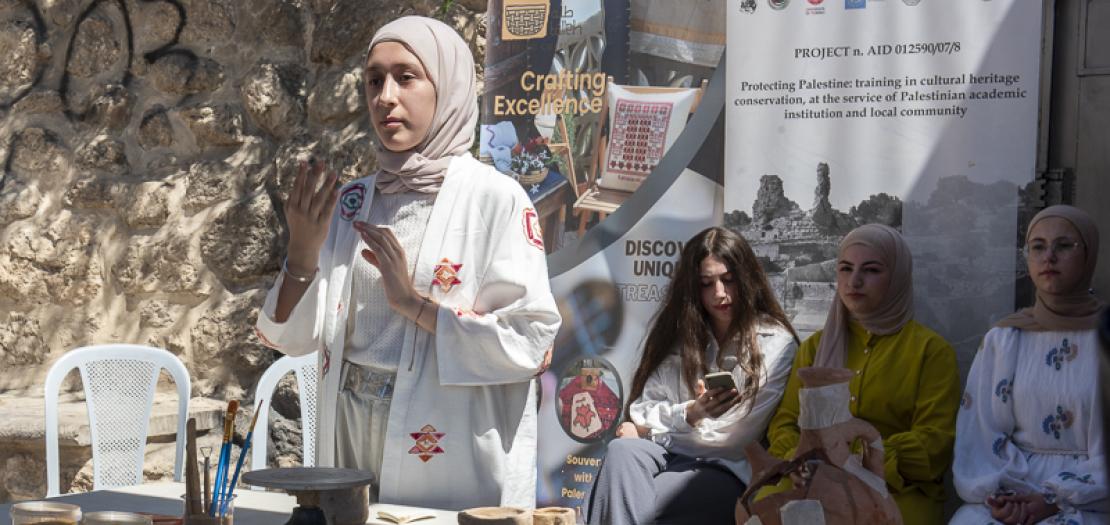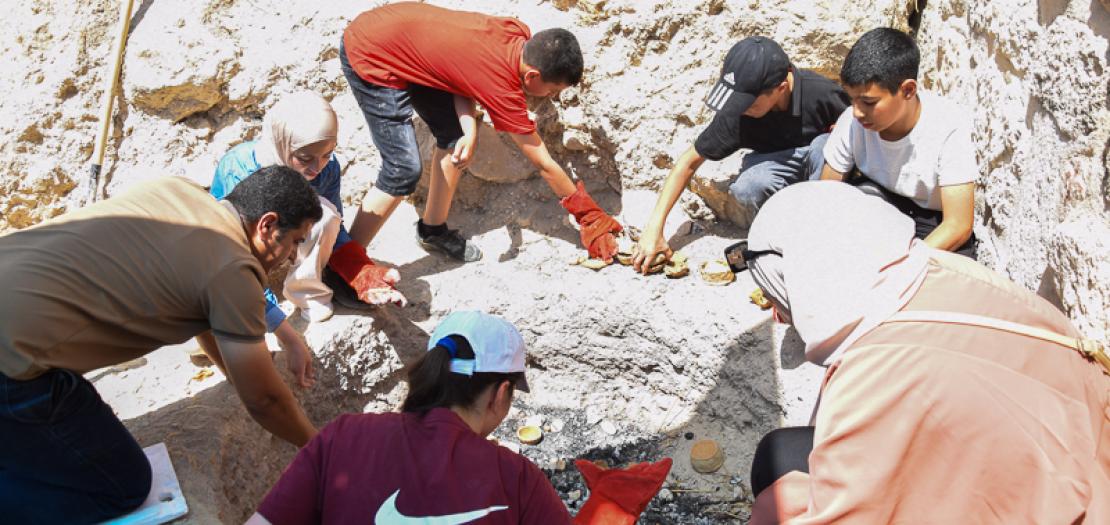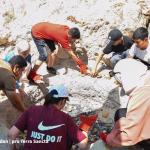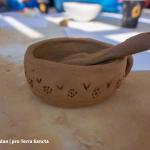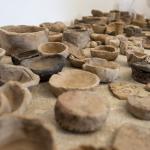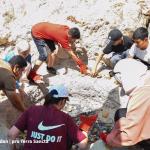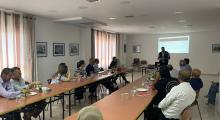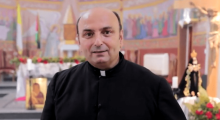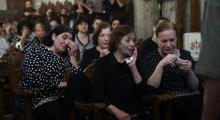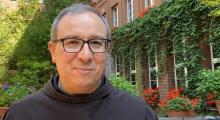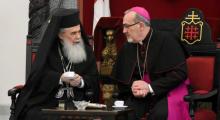Issued by the Catholic Center for Studies and Media - Jordan. Editor-in-chief Fr. Rif'at Bader - موقع أبونا abouna.org
In Bethany/al-Eizariya, activities in the archaeological area are in full swing around the Franciscan shrine and the tomb of Lazarus.
Kindling a passion
In the middle of June, the pro Terra Sancta association started a course of “experimental archaeology” which has involved about 15 local teenagers aged between 12 and 17. It is a challenge, but also a wager to “bring them closer to their history from when they are very young,” said Carla Benelli, an art historian and coordinator of the Pro Terra Sancta projects in Bethany, in collaboration with the Mosaic Center of Jericho. “It is an age group that is at risk, especially in dramatic contexts of daily conflict. It is the first time that we have approached these subjects. We have focused on experimental archaeology to involve them and make them passionate about something.”
“This program has helped me to get to know our cultural heritage better,” said Linda Halabiya, 15 years old, who has become passionate about pottery. “For us, as Palestinians, it is important to know our heritage, to preserve it and save it from oblivion and abandonment.”
At the ceremony of distribution of the certificates of participation, on 3 July, the city’s authorities were also present. “This project is important because it allows us to show our heritage and give youngsters the chance to get to know it,” said the Mayor, Khalil Abu El Reesh, who had words of admiration for the young people.
University in the field…
The project benefited from the collaboration with two professors of archaeology from the University of Turin, Chiara Maria Lebole and Giorgio di Gangi, who put their expertise in “experimental archaeology” and their passion at the disposal of the teenagers.
“We started from clay: they broke objects, to learn to make the technical archaeological drawing and find the joins; we excavated a kiln and lit a fire; they made their own articles,” they told us. On returning to Italy, they will take with them these youngsters’ desire to learn and their smiles, “which were never lacking,” despite the difficult situation in which they are living.
… and on the Campus
From Turin to Palermo, from the excavations to the lecture theatres. Pro Terra Sancta and Mosaic Center have involved the University of Palermo - one of the few in Italy that can award the qualification of restorer – to create a professional path in this sector. This year, a master’s degree was held online, but the hope is to activate a fully-fledged three-year degree course in restoration from the next academic year. The authorizations exist and the agreements between the University Al Quds and the University of Palermo for the exchange of lecturers and students are currently being defined. “There is a shortage of professional restorers,” explained Carla Benelli. “This is why we turned to the University of Palermo. The objective is to make the local youngsters grow and give then an education so that they can work in this sector in favour of their cultural heritage.”
Doing lovely things
Carla Benelli tells us about the presence of Pro Terra Sancta in Bethany, which dates back to 2016: “We have concentrated on targeted projects in the Franciscan area. Support by Italian Cooperation was important to develop the relationship with the local community,” which is an element which since the beginning has characterized the actions of Pro Terra Sancta. Excavations and restoration operations then extended to the neighbouring areas, on the request of the various owners: the Muslims, whose mosque borders on the Franciscan property and stands on the remains of medieval churches which were built by Queen Melisende; and the Greek Orthodox: “From this year onwards,” Carla Benelli continued, “we have begun restoring what is called the Tower of Melisende, the symbol of the city, which is in a state of severe disrepair.” Summarizing the words of Professor Lebole: “Lovely things can be done, they have to be constructed.”



